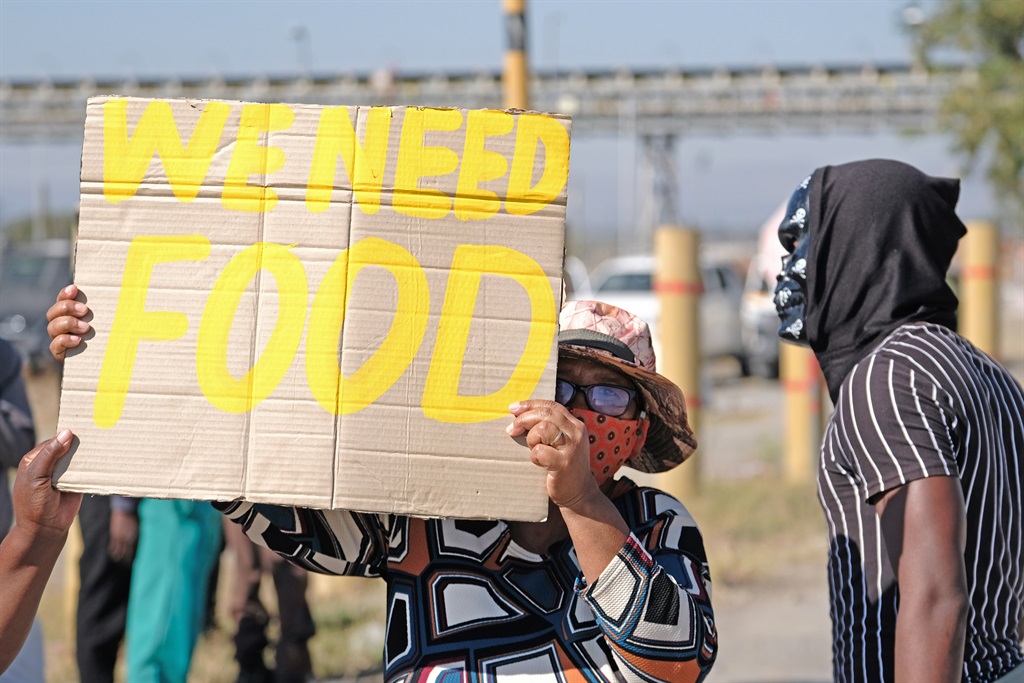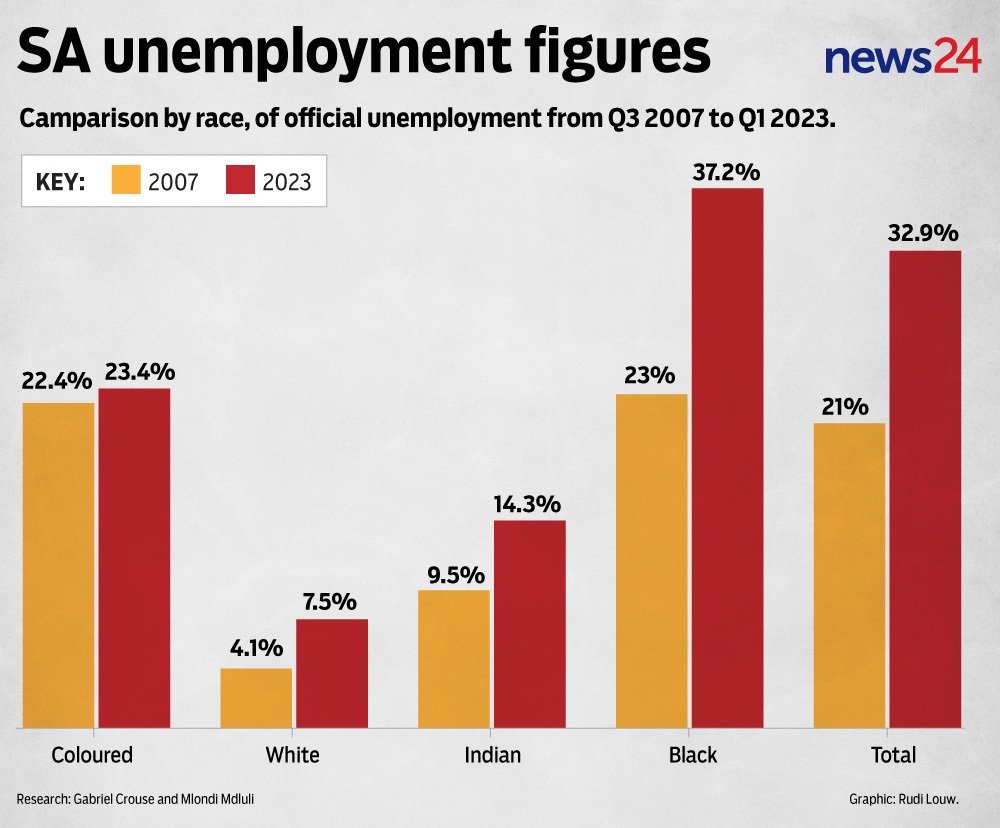
The Employment Equity Act fails on principle. It does the opposite in practice, too, materially harming those most in need, argues Gabriel Crouse and Mlondi Mdluli.
Bianca van Wyk and Thembalethu Seyisi (Understanding DA's exploitation and resistance to AA and BEE: What is the truth?) make a good point in observing that the Democratic Alliance (DA) has not been accurate in its campaign against the implementation of the amended Employment Equity Act (EEA).
A post on the DA’s X account on 8 August states: "The ANC's Race Quotas Act will completely ban the employment of coloured and Indian South Africans in certain provinces". This does need correction, which requires technical detail.
To start, the "target” for coloured women in the draft EEA regulations is "0.0%" for all 72 listed categories of work in Limpopo province. That is the only case that might reasonably be construed as a "complete ban", but even there it is not directly illegal for big businesses to hire coloured women.
How so? "0.0%" targets are totally new to the private sector, but they have already been enforced in the public sector. Regarding the public sector, the Labour Appeals Court found that a "target" of "zero” for Indian females in Gauteng was neither a "quota" nor an "absolute barrier” under the EEA. This was because an Indian female seeking the relevant position could theoretically wait for the "target" to change (who knows when) or could move to KZN. The shocking unanimous judgment is available here.
On the other hand, technically when one's race-gender group is already "over target" this has the same effect as a “0.0%” target, namely that public employers can deny people work and keep the post vacant instead under the EEA.
To use a KZN-Indian example, the Labour Court ruled against the rejection of an Indian male in KZN public service, but only on technicalities, emphasising that if only the government followed the EEA script then such rejection would be lawful, even though it would mean keeping a post that was already vacant for a year empty for at least another year.
READ | Ebrahim Harvey: Why the EEAA will not pass constitutional muster
This took place under the anti-work EEA that Van Wyk and Seyisi defend. It has dominated the public sector for a decade and a half with results that all South Africans know painfully well. The system is coming to the private sector. It is morally bereft.
Still, the DA oversimplified the system's details. Even in Limpopo, not all coloured women face a 0.0% "target” because for unskilled jobs the target is effectively 0.1%. Coloured men in Limpopo are targeted above 0.0% in 18 out of 72 skilled categories. The system is sickening. But technically it is not a "complete ban".
Another noteworthy technicality is that anyone whose race-gender is "overrepresented" in the public sector could be denied work under the EEA, including black people, as per the Constitutional Court.
The draft private sector regulations at issue render black men "overrepresented” in six categories, and black women "overrepresented" in nine categories nationally. Minister Nxesi said that "overrepresented" people that are rejected in the private sector under the EEA "must look for the jobs in the other companies [sic]".
Nxesi was talking about Indian people, a soft "target", but the law and his draft race targets apply to black people too. In this analogous case, a black female was rejected for elevation because she was a black female.
This is the EEA way to "redress” apartheid. It fails on principle. It does the opposite in practice, too, materially harming those most in need.
Unemployment across racial lines
Van Wyk and Seyisi write: "The unemployment statistics for the first quarter of 2023 paint a grim picture of the disparities that still persist within the South African workforce", before repeating 2023 unemployment rates by race and gender.
Thinking "the disparities still persist" is a noteworthy gloss. The disparities have changed in the BEE-era, starting roughly in 2007, and the devil lies in the changing details.
Below is a graph with a comparison, by race, of official unemployment from Q3 2007 to Q1 2023.
To be clear, that means the black-white unemployment ratio has decreased from about 6:1 to about 5:1. Meanwhile, black unemployment rose 13.3 percentage points.
This is proof that BEE, in the broad sense including the EEA, has failed the nominal beneficiaries, "disadvantaged" people. Worse than that, BEE has damaged poor people.
Corruption cuts the poor. The report of the Zondo state capture commission said of race-based policies that "evidence shows that the ideals of [black] empowerment were grossly manipulated and abused to advance the interests of a few individuals". The Zondo report also spells out how race law systemically incentivises rent-seeking and recommends a "value-for-money" first reset in procurement.
Furthermore, we calculated that annual Gross Fixed Capital Formation (GFCF) fell by 28%, from R15,320 per person in 2018 to R11,036 per person in 2022 (in constant rands). Less investment, less jobs, and race law deters investment.
Curiously, Van Wyk and Seyisi compare South Africa's amended EEA to Canada’s EEA, the latter being a rich, growing nation. But they fail to notice that South Africa's Constitutional Court has ruled that it is sometimes preferable to keep a police post vacant for two years rather than promote a white woman under our EEA system. There is nothing like that kind of anti-work policy in Canada.
Here is another plea for local pro-black activists to critically compare superior, moderate international examples with South Africa's "more aggressive" approach.
Second, Van Wyk and Seyisi fail to mention that the intended beneficiaries of Canada's race law are racial minorities, whereas in South Africa it is (almost uniquely) a racial majority with intra-racial inequality growing. The black top 10% out-earned the white top 10% by a factor of 2.5 and outearned the black bottom 40% by a factor of 8 in absolute terms in 2015 (the latest available data). Black-dollar millionaires were overtaking their white counterparts at the time. Then the numbers stopped being tracked.
The latest media flurry reflects this trend with so much more talk about "BEE Billionaires" than about black unemployment. Nxesi wrote nearly a thousand words here about "Employment Equity status" without one word on black unemployment.
We applaud Van Wyk and Seyisi for bringing up black unemployment; few have the bravery to do so. But they should come to terms with what the BEE-era has already done to see that the new EEA will make it worse.
- Gabriel Crouse is a fellow, and Mlondi Mdluli is the Campaigns Manager, at the Institute of Race Relations.
*Want to respond to the columnist? Send your letter or article to opinions@news24.com with your name and town or province. You are welcome to also send a profile picture. We encourage a diversity of voices and views in our readers' submissions and reserve the right not to publish any and all submissions received.
Disclaimer: News24 encourages freedom of speech and the expression of diverse views. The views of columnists published on News24 are therefore their own and do not necessarily represent the views of News24.




 Publications
Publications
 Partners
Partners

























